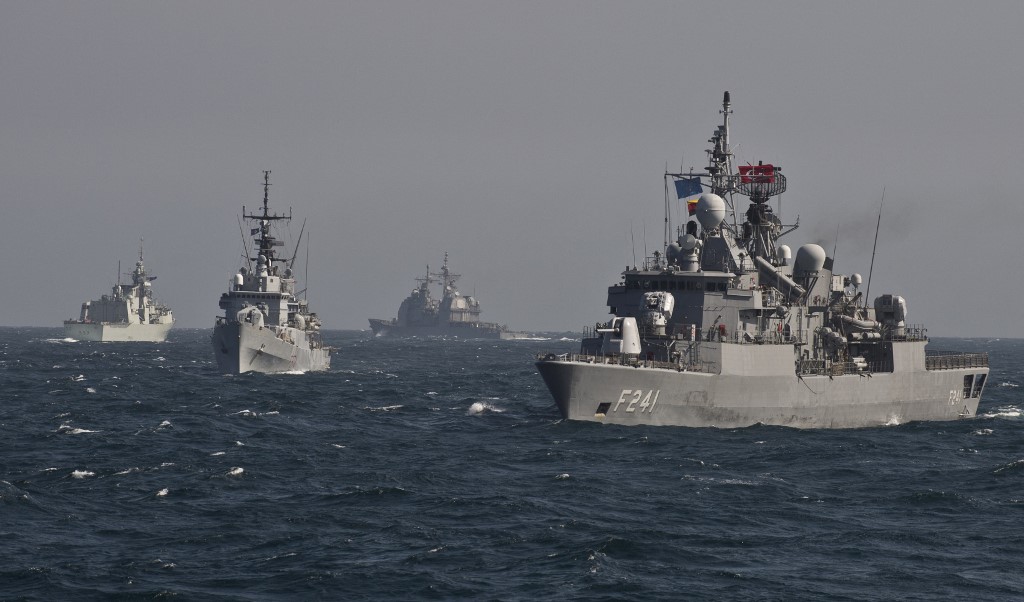Fatih Yurtsever*
Turkish Foreign Minister Mevlüt Çavuşoğlu is making statements that will further exacerbate the tense atmosphere in NATO countries against Turkey due to its negative stance towards Finland and Sweden’s NATO membership applications.
Turkey has canceled or postponed some planned NATO exercises in the Black Sea due to the requirements of the Montreux Convention amid tensions between Russia and Ukraine, Foreign Minister Mevlut Çavuşoğlu said in an interview with the Anadolu news agency on May 31, 2022.
It is impossible to explain Çavuşoğlu’s statement full of material errors with the principles of diplomacy. However, it is clear how a military exercise planned according to NATO procedures can be canceled. The Montreux Convention’s Article 19 which Turkey has invoked only prohibits the passage of Russian and Ukrainian warships through the straits. This statement should be seen as a natural consequence of the Erdogan administration’s view of foreign policy as a domestic policy apparatus.
In reality, how are NATO exercises planned, how are they canceled, and is there a regular naval exercise by NATO in the Black Sea?
NATO exercises
As stated in the 2010 Strategic Concept, the Alliance’s fundamental and enduring purpose is to safeguard the freedom and security of all its members. The Alliance must maintain the capabilities to prevent, detect, deter and defend against any threat of aggression, support and, if necessary, restore territorial integrity, and actively engage in a partnership to enhance international security. These objectives are the underpinning tenets of the Strategic Concept and therefore provide the basis for the NATO exercise policy.
According to NATO, exercises are necessary tools through which the Alliance tests and validates its concepts, procedures, systems and tactics. More broadly, they enable militaries and civilian organizations deployed in operation theatres to test capabilities and practice working together efficiently in a demanding crisis situation. The rationale for planning and executing military exercises is to prepare commands and forces for operations in times of peace, crisis and conflict. Their aims and objectives must therefore mirror current operational requirements and priorities.
Military Training and Exercise Programme
Events and activities related to NATO training and exercises are developed by NATO’s two strategic commands – Allied Command Operations (ACO) and Allied Command Transformation (ACT). This process culminates with publication of the annual Military Training and Exercise Programme (MTEP). Since July 2012 the ACO has been responsible for setting the training requirements and conducting NATO evaluations, while the ACT is responsible for managing MTEP and executing the exercise program.
MTEP provides detailed information on training, exercises and related activities scheduled for five calendar years. The exact specifications of an exercise are developed one or two years prior to the start of the exercise. The document is based on the priorities and intentions of the strategic commanders. The areas typically included are current and future operations, the NATO Response Force, transformational experimentation and NATO’s military cooperation programs.
NATO exercise requirements are coordinated during MTEP Programming Board meetings (which are open to representatives from partner countries) starting at least 18 months before the beginning of the next cycle. Preliminary planning culminates in the NATO Training and Exercise Conference, where NATO commands, NATO member and partner countries and other invitees conduct final exercise coordination and support the annual MTEP. NATO, specifically Supreme Headquarters Allied Powers Europe (SHAPE), publishes its annual exercise program online.
Headquarters Supreme Allied Commander Transformation (HQ SACT), located in Norfolk, Virginia, has the authority to cancel a NATO exercise in the event the Military Committee (MC) or North Atlantic Council (NAC) approval is revoked.
In summary, NATO exercises are planned in accordance with the political and military objectives outlined in NATO’s Strategic Concept document, and the Military Committee approves MTEP. The military representation of each member state participates and votes in the approval process. Contrary to Foreign Minister Çavuşoğlu’s statement that “Turkey has canceled the NATO exercises in the Black Sea,” no single country has the authority to cancel a NATO exercise in MTEP. Only member countries can prevent an exercise from being included in MTEP by providing specific reasons during the planning process.
The NAC must approve exercises with political consequences. NATO has not planned or conducted an exercise in the Black Sea itself to date due its fragile geopolitical environment. Instead, NATO Standing Naval Task Groups participated in nationally planned Black Sea littoral states’ invitational exercises (Bulgaria Breeze Exercise, Romania Sea Shield and Ukraine Sea Breeze). The Military Committee also approves the NATO Standing Naval Task Groups’ deployments. The NATO secretary-general stated that NATO does not intend to intervene militarily in the Russia-Ukraine crisis. Consistent with the political decision of the NAC, NATO avoids activities in the Black Sea that would directly increase tensions with Russia. The Black Sea deployments of the NATO Standing Naval Task Groups were also canceled in accordance with that decision. However, the cancelation of the deployments in the Black Sea was not made by Turkey alone but by the joint decision of all member states.
So far, NATO countries have avoided making requests of Turkey to transit the straits, which could lead to a crisis between Russia and Turkey. Although the 19th Article of the Montreux Convention only prohibits the passage of warships from Ukraine and Russia through the straits, no country from NATO has yet asked Turkey to send warships to the Black Sea via the straits.
There is verbal consensus not to put Turkey in a difficult position in terms of implementing the Montreux Convention. However, the development of a domestic political discourse that ignores the procedures of the NATO exercise planning process as well as a blurry attitude toward invoking the relevant Montreux Convention article (Turkey pretends to have implemented Article 21, which gives Turkey the right to close the straits to all warships while invoking only Article 19), calls Turkey’s seriousness as a state into question.
* Fatih Yurtsever is a former naval officer in the Turkish Armed Forces. He is using a pseudonym out of security concerns.

